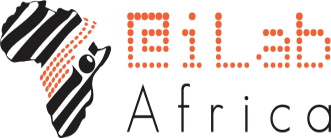@iLabAfrica- Strathmore University Researchers Attend IST Africa Conference 2017.
Three Researchers from @iLabAfrica- Strathmore University, were selected to present their papers in the IST Conference 2017 held in Windhoek, Namibia. Tabitha Mberi, Tracy Weru and Lorna Mutegi presented their individual papers to an audience comprising of senior officials from both the public and private sectors in education and research; Innovation stakeholders from Namibia, the European Commission, the African Union Commission, Southern African Development Community, Ubuntu Alliance among others. There were over 150 presentations from 36 countries.

L-R; Lorna Mutegi, Tracy Weru and Tabitha Mberi
Tabitha’s paper themed:”Challenges to the Successful Implementation of E-Government Systems in Developing Countries: A Case of Taita Taveta, Kenya “was on work that @iLabAfrica- Strathmore University continues to implement in Taita Taveta County. Tabitha’s research looked at how devolvement of government from local authorities to county governments in Kenya has resulted in many counties adopting online revenue collection systems with the aim to improve public sector services and deliver them in an effective and efficient manner. Her study assessed the various challenges that the team has faced in implementing the system which range from lack of trust of e-government systems by citizens, lack of infrastructure servicing by the county government, failure to follow procedures by system users among other reasons
Lorna’s paper, titled “Unlocking the Supply of Open Government Data for SDGs: A Case of Kenya National Bureau of Statistics (KNBS)” focused on demand for data-for-development to support and monitor a country’s progress in line with the Sustainable Development Goals (SDGs) is a rising global need. Lorna’s paper illuminates on a model for unlocking the supply of Open Government Data (OGD) for monitoring and evaluation of the SDGs based on a project that Strathmore University, through @iLabAfrica- Strathmore University, is currently working on in partnership with The World Bank and the Kenya National Bureau of Statistics (KNBS). The model informs on the benefits of utilizing a quadruple helix model (public/private/research/civil society) in an OGD initiative, to unlock quality, timely and reliable government data to support and measure SDGs and other national development goals.
Tracy presented her paper titled “Cyber-Smart Children, Cyber-Safe Teenagers: Enhancing internet Safety for Children“. Child Online Protection is a hard and tricky concern that requires multi-national efforts if it’s to be successfully tackled in the near future. This is mainly due to the exponential growth in smart devices. Providing a safe environment requires an in-depth understanding of the types and prevalence of online risks young Internet users face, as well as of the solutions most effective in mitigating these risks. To be able to get the right information on protecting children and teenagers there is need of an Internet Safety awareness program that will build a generation of responsible digital citizens whose online behaviour demonstrate media literacy, ethics, safety and security.The paper presented by Tracy Nyatoro Weru proposes the development of a mobile based game application based on child online protection that will provide a comprehensive learning experience that is amazingly fun, highly interactive and extremely effective.
The IST Africa Conference provides a platform to strengthen Information Society, ICT and Innovation related policy dialogues both within Africa and between Africa and Europe, through Plenary Sessions, the rich thematic knowledge exchange facilitated by Scientific Programme and co-located multi-lateral (eg. JEG8, eu-Africa HLPD on STI) and private bi-lateral meetings. (Source: IST Africa).
Participation in the IST Africa 2017 conference continues to contribute to @iLabAfrica’s- Strathmore University exploitation and research and innovation strategy. In addition, the networking opportunity will continue to help build the research Centre ties with leading Public, Private, Education, and Research organizations from more than 39 countries who took part in the conference.
